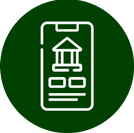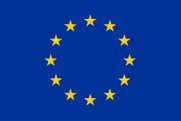Outreach approaches
The financial institutions in the Nordics are at different stages of maturity in terms of fulfilling the aim of becoming a one-stop-shop for energy-efficient renovations. The nature and extent of partnerships between financial institutions and external partners differ, as does the available data on homeowners and their houses. Structurally, the variations in regulation and market organisation across the Nordic countries affect the possible configuration and initiatives of stakeholders, and thus also the efforts of the financial institutions.
However, some fundamental features are shared among financial institutions in the Nordics. They all aim to connect the homeowner to an external partner in order to initiate the energy-efficient renovation journey. Achieving a fruitful link between financial institutions, homeowners and external partners, is a common goal among stakeholders and is critical to the Nordic Energy Efficient Mortgage Hub project.
The efforts employed by the financial institutions are either digital or analogue. The task is to match the right combination of approaches to the targeted homeowners and then optimise it to generate leads for the external partner.
DIGITAL
APPROACH
LANDING PAGE
Retention rather than attraction is key.
When planning a renovation as a house owner, the financial institution's website is not a source that one would naturally seek out in the explorative information search phase. Further, the FI’s website is in competition with the SEO of installers, craftsmen and manufacturers of energy-efficient solutions.
Because of this, the goal is not to attract visitors and generate traffic, but that the designated landing page for energy-efficient renovations is informative, engaging and with relevant call-to-action (CTA) to external partners – relevant banking features such as typical loan offers or decision tree journeys should be incorporated.
DIRECT MESSAGE
Wording and timing is ensures engagement.
Relevant homeowners can be targeted and a direct message can be pushed based on available segmentation data. However, it has to be perceived as relevant to ensure engagement.
Reaction (opening the message) and interaction (clicking the CTA), can be greatly improved by optimising the wording (e.g. playing on loss aversion is generally more effective than promising gains) and timing (following the trigger of e.g. pension payments, available grants, etc.).
WEBINARS
Trust and transparency are an essential enabler.
Webinars are generally a big generator of leads if the information is perceived as relevant and the providers as trustworthy. With a well-structured webinar, it is possible to attract homeowners at different levels of readiness to buy.
An important learning – that is applicable to all efforts – is that one of the key identified barriers of homeowners is low transparency and high uncertainty about the quality of providers. Maintaining an advisory role, even as a provider prominently featured at the webinar, is important in building transparency and trust.
ANALOGUE
APPROACH
CALLING CUSTOMERS
Proper preparation and the advisor’s commitment
Calling customers is time-consuming for advisors and value needs to be balanced for both parties.
The advisor has not only to buy in on the purpose of the call, but also feel comfortable talking about green renovations, and knowing how to handle follow-up questions and positive responses – that is, knowing what material to provide to the homeowner and how to easily refer the homeowner to the external partner.
Involvement and self-initiatives during the preparation phase can strengthen the advisor’s commitment as can making calls a social activity at the office.
CUSTOMER MEETINGS
Preparation and defined limitations
A significant barrier for the advisor is a perceived lack of knowledge on the subject. When an advisor is handed the task of discussing energy renovations at a customer meeting, the lack of connection between their role and the task, amplified by fear of acting as an energy advisor, means they would rather not open up for the discussion.
As with calling customers, it is essential that the advisor has been properly prepared and that the limitations of their role have been defined – that is, they are an advisor on financial matters, not energy efficient renovation, and they are only responsible for knowing how to refer to material or external partners for answers, and not knowing the answers themselves.
SEMINARS
Engaging the local community
Seminars can be a powerful arena for engaging the local community, creating awareness and often shifting the gathered homeowners from an initial search phase to actual decision-making – all within a couple of hours. Gathering homeowners, an impartial expert, one or more suppliers, representatives from the municipality and the financial institution, at a seminar present an opportunity of overcoming multiple barriers at once.
Breaking down the silos creates transparency, trustworthiness, and a feeling of exploring the market – advised by impartial experts – and is backed by financing opportunities and municipal support.








